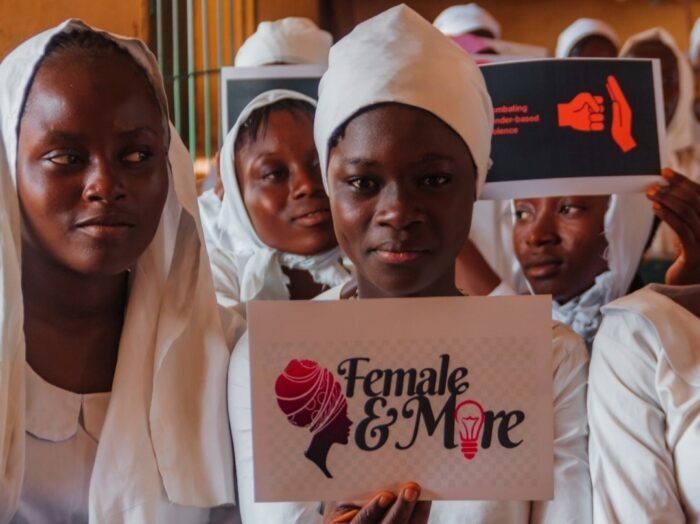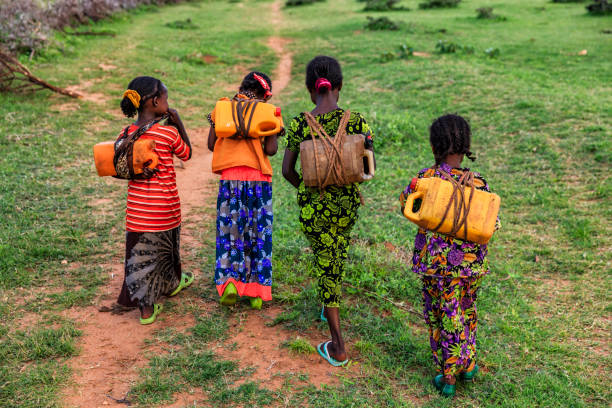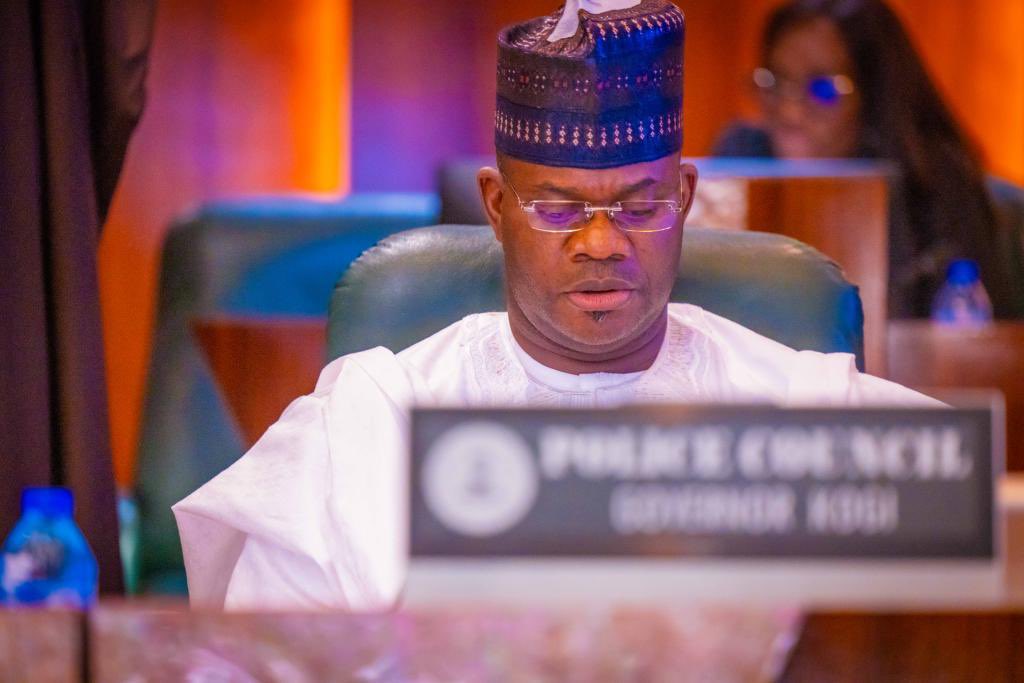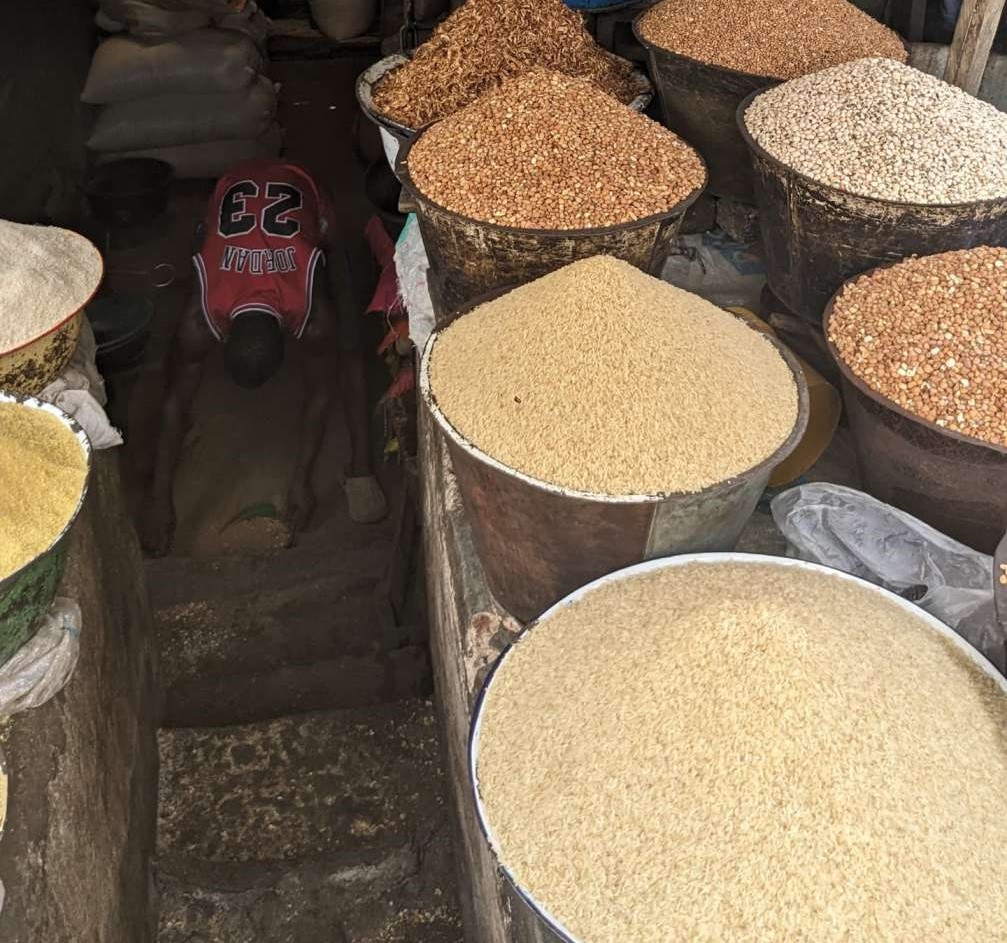For a patriarchal society, where girls are traditionally deemed inferior and their rights restricted by stereotypes and harmful gender norms, these advocates are changing the situation and championing a new era for the girl child.
Today, October 11, 2022, marks the 10th anniversary of the International Day of the Girl Child. The day was adopted by the United Nations General Assembly to recognise the rights and challenges of girls around the world.
The event not only increases public awareness about issues affecting girls, but it also amplifies the voice of the girl-child by empowering her to access local and global opportunities and reach unprecedented heights.
Girls in Nigeria are not exempt from the myriad of global challenges, ranging from gender inequity to lack of formal education, gender-based violence, early marriage and pregnancy, and female genital mutilation (FGM), among others.
Earlier this year, the United Nation Children’s Fund (UNICEF) said out of the 18.5 million out-of-school children in Nigeria, more than 10 million are girls. Also, a report projected that there would be 29 million child brides in Nigeria by 2050.
But amid this quagmire of seemingly hopelessness, some non-governmental organisations in Nigeria are rewriting the narrative by offering hope to the girl child. These NGOs, most of which are led by women, are championing the cause of a better world for female children.
A Refuge For Free Education In Ogun Community
The School on the Street Initiative, established in July, 2020 as a post-COVID alternative support for underprivileged children at Iyana Ilogbo community in Ogun State, is offering free education to pupils.
Speaking with FIJ, Oluwatobi Raji, the co-founder of the initiative disclosed that a survey conducted by the NGO during the pandemic revealed that the community children do not have access to e-learning facilities unlike those in the urban areas.
This, she said, necessitated the establishment of the initiative. To kick off the programme, they decided to implement a house to house tutorial session for the children.
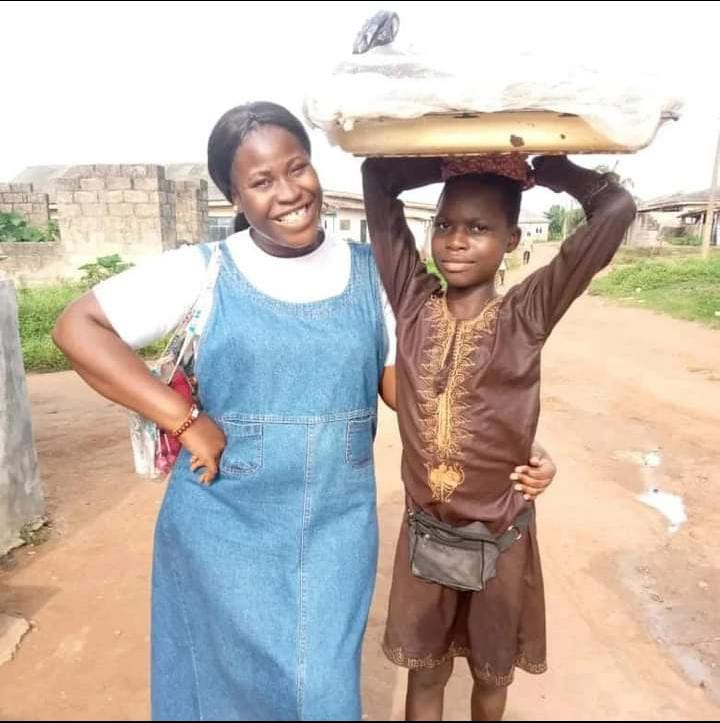
In September 2020, when the federal government ordered schools to reopen, School on the Street Initiative received feedback, encouraging the organisers to make it a functional school for children who cannot afford to go to school.
From this, an elementary school emerged for the underprivileged children between ages three to fifteen. Although on special considerations, they enroll children aged two and above. Currently, the school has provided an educational shelter for 150 pupils, 80 per cent of whom are girls.
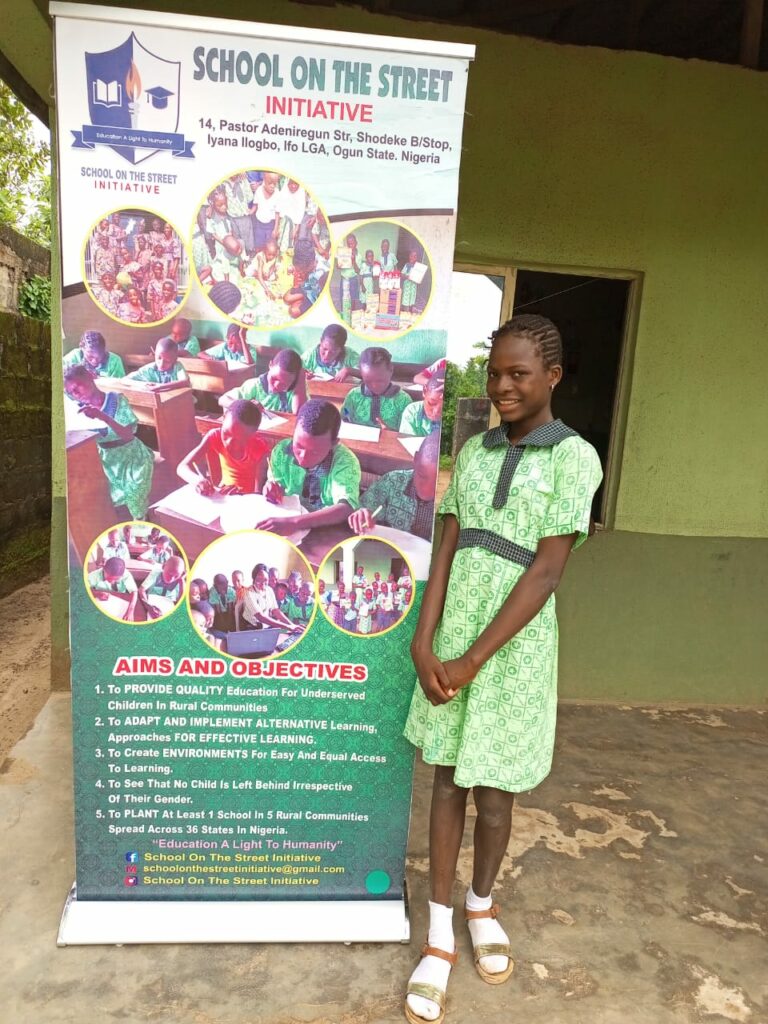
Raji explained that most of the pupils from kindergarten to basic six are survivors of domestic and sexual violence, child labour, teenage pregnancies and child marriage. She also said some of them were abandoned by their parents.
For Raji, her childhood experience as a rape victim propelled her on the path of advocacy for child safety and education.
Not Without Challenges
As the initiative caters to the needs of the community’s children, there are challenges which limit the scope of the solutions they offer.
In Raji’s words, “For now, we are making use of a rented apartment. We need a property where we would have a school and and a hostel facility. Some of the children are exposed to child labour and other problems from their parents and guardians. Some don’t even come to school even though it is free.
“The parents will tell you they have to go and hustle with the children. So you see them again after two or three weeks, which is affecting their academic progress. Despite our attempts to educate the parents and guardians on the dangers of child labour and abuse, it seems they are not enlightened. But if these children are in our care after school hours, we’ll be able to monitor them. Also, this community has cases of teenage pregnancy and child marriage because they don’t value education.”
In addition to a lack of awareness on the part of parents and guardians, the organisation is confronted with funding challenges. But despite these challenges, School on the Street Initiative hopes to establish its free tuition school in at least five rural communities within Nigeria where the children will have access to quality education.
Raji said; “And not just school. We have a vision of having a place called home, a shelter for the children. Also, we are not limiting ourselves to elementary school. We are looking at expanding to secondary school level.”
READ ALSO: SGBV: Pedophiles on the Loose as Uncertainties Trail Justice System for Victims
For Girls To Live And Thrive in Northern Nigeria
Anna Suberu, former Digital Campaigns Manager, Wadi Ben-Hirki Foundation, told FIJ that when it comes to policies that favour girl child rights, Nigeria faces a policy implementation gap. She said the country has a long way to go in realising that everyone’s individual rights must be respected no matter their age, sex, orientation, or any other socio-demographic characteristics.
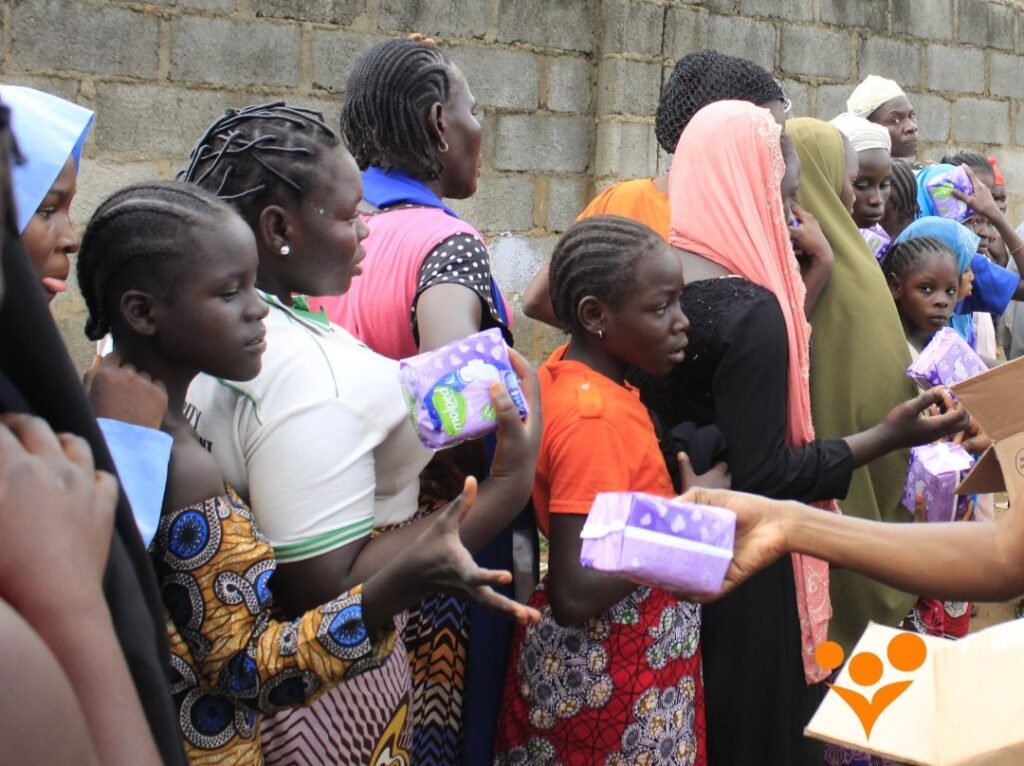
Suberu, who now volunteers at the NGO, revealed that “across Nigeria, young females still get treated as second-class citizens because there is no awareness of their rights both on an individual level and in society at large.
“We have to get to a place where girl child rights are seen as non-negotiable, so we can collectively work to amplify the rights of all girls, put pressure on the government, policymakers, and key stakeholders to make sure policies that favour girl child rights are given the necessary attention and are fully implemented.”
According to her, the government is expected to secure the life, liberty, and rights of girls in Nigeria but everyday, women and girls continue to face assault, sexual abuse, infringement of their basic rights and a lack of access to resources.
“The state must simply provide access to the basic infrastructure for development and make it easier for girls and women to be free from external force. Promoting education for all people will aid in reducing child marriage. At the same time, all people must be ready to break free from the homogeneity of state social security and promote the individual rights of females free of control.”
She went further to reveal that Wadi Ben-Hirki Foundation’s focus has always been on creating a world where no one is left behind and everyone is given a fighting chance at living a life of dignity.
The organisation does this through education, provision of relief and support, advocacy for girl child rights in grassroots communities, and by contributing evidence-based information to policy discourses on national and international scenes.
Founded in 2015, the organisation’s primary aim is to alleviate the suffering of less privileged and marginalised individuals living in Northern Nigeria. The foundation started achieving its mandate by providing relief items to individuals affected by the insurgency in the region. Highest among this population of affected individuals were women and girls, who were already facing barriers to living a full life even before insecurity became entrenched in the North.
Through projects like StreetToSchool, Girls Not Wives, and SHEROES, the foundation consistently works with women and girls to educate them, take them off the streets and put them in school, and advocate for girl child rights by raising awareness of the dangers of child marriages.
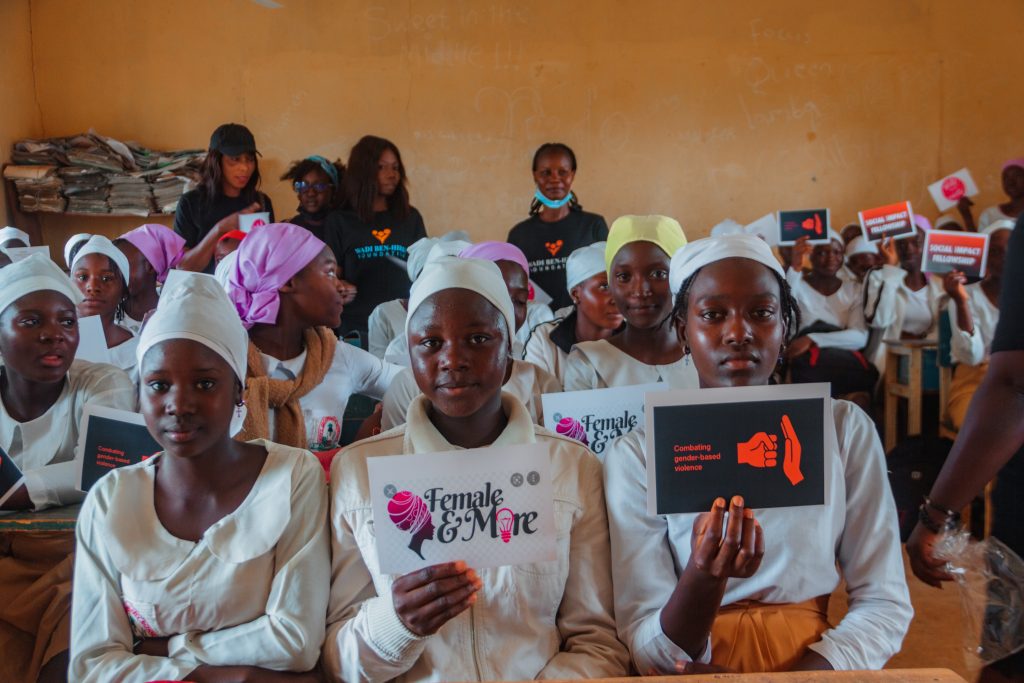
The foundation also supports and empowers women to take control of their future by providing vocational training opportunities that give them access to higher incomes, thereby preventing the continued marginalisation of women and girls.
She went further to reveal that female children must be seen as individuals first, adding that all stakeholders must realise that no one is free from oppression and marginalisation until everyone is free.
READ ALSO: REVEALED: Traffickers Targeting Nigerian Girls Aged 16 to 25
“When women and girls are given access to resources and allowed to live a life that is free of external control, the country would experience increased economic development.
“We must continue to champion the stories of women and girls doing great things in their communities. The more we see it, the more it grows and the easier it becomes for more women and girls to live freely.”
Meanwhile, FIJ learnt that the foundation has directly impacted more than twelve thousand girls, awarding scholarships, volunteer-based teaching, stationery, learning materials, and WASH products, among other interventions.
What It Takes To Eradicate Girl Child Issues — Expert
Roseline Adewuyi, a gender advocacy and social education expert, said although NGOs and other stakeholders are addressing girl child issues, total eradication of the ravaging problems requires a national reorientation away from patriarchy and gender inequality.
This national reorientation, according to her, is a process that must involve the media, the schools, and the political parties.
Adewuyi said, “NGOs are actually getting children off the streets, but then new street children are reproduced daily. They are reproduced through internal displacing from insecurity, increasing poverty rate, poor orientation of reproductive rights to avoid unwanted pregnancies by teenage girls, and poor sex education in schools.
“Also, reducing the amount of child brides will involve clear legal restrictions to serve as deterrents to enablers of child marriage. Presently in Nigeria, it is not clear what the age of consent or minimum legal age of marriage is, because of the existence of a secular law and religious penal code existing side by side, making it impossible for the law to serve as a deterrent. This is something stakeholders must address to have clear stance of the law on a federal age of consent and marriage.”
Subscribe
Be the first to receive special investigative reports and features in your inbox.


